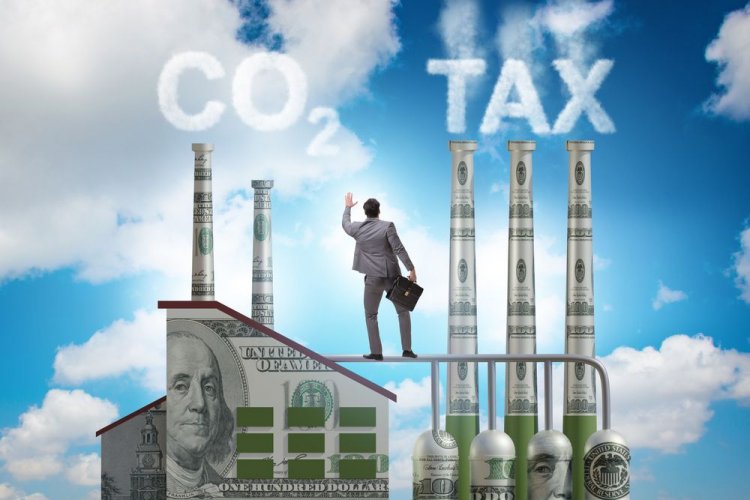The US Congress introduced the Clean Competition Act, which aims to increase the competitiveness of American companies in the global market and combat the main sources of greenhouse gas emissions that heat the planet by creating a carbon-based carbon adjustment mechanism.
Relevant draft law registered on Wednesday, June 8, Democratic Sen. Whitehouse Sheldon. The co-authors were Senators Chris Koons (D-DE), Brian Schatz (D-HI) and Martin Heinrich (D-NM).
The bill, entitled "Clean Competition Law", aims to stimulate decarbonisation in the country and abroad.
The peculiarity of the project is that it introduces a fee for carbon dioxide emissions not only for importers but also for domestic producers.
"American manufacturers doing the right things on climate are often at a disadvantage compared to pollution-friendly foreign competitors," said Senator Whitehouse. "Our Clean Competition Act will give American companies a step up in the global marketplace while lowering carbon emissions at home and abroad and steering the planet toward climate safety. I’m hopeful this proposal has a path forward in Congress, as experts from across the political spectrum have expressed support for a border adjustment mechanism like ours".
The main provisions of the bill:
From 2024, carbon-intensive products of domestic producers and importers will be subject to taxation: fossil fuels, refined products, petrochemical products, fertilizers, hydrogen, adipic acid, cement, iron and steel, aluminum, glass, cellulose and paper and ethanol.
From 2026, taxation will be extended to imported end products containing at least 500 pounds (226 kg) of carbon-intensive raw materials, and from 2028, the minimum amount of raw materials will be reduced to 100 pounds.
The calculation of the value of the tax will be carried out in different ways:
- for non-transparent countries – based on the ratio of the level of carbon intensity of the economy of the country of origin to the level of carbon intensity of the US economy;
- for countries with transparent verified data – based on a comparison of the average carbon intensity of the industry in the country of origin and in the US, manufacturers from such countries will be able to provide their own verified data on CO2 emissions;
- for the least developed countries – such a tax will not be introduced.
Importers and domestic producers will pay tax only on CO2 emissions that exceed the base value of similar products in the United States. At the same time, such baseline indicators will decrease by 2.5% annually for 2025-2028, and then by 5% annually.
To calculate the baseline, US carbon taxable producers must, in addition to the annual GHGRP CO2 emissions report, submit data to the Treasury: CO2 emissions, annual electricity consumption and annual primary output. Based on this, the Treasury calculates the average carbon capacity under Scope 1 and Scope 2 for each carbon-intensive industry.
The starting price of carbon will be $55/t and will increase by 5% above inflation each year.
75% of the funds received each year from SWAM will go to decarbonisation grants for each of the sectors covered. The other 25% will be used to help decarbonise developing countries.
Domestic producers of raw materials covered by the new law will receive export discounts.
Before EcoPolitics reported that the House of Representatives of Rhode Island (USA) proposed bill, which will lend to the builder of the house in the cryptocurrency "green coin" for reducing the carbon footprint of the project.





